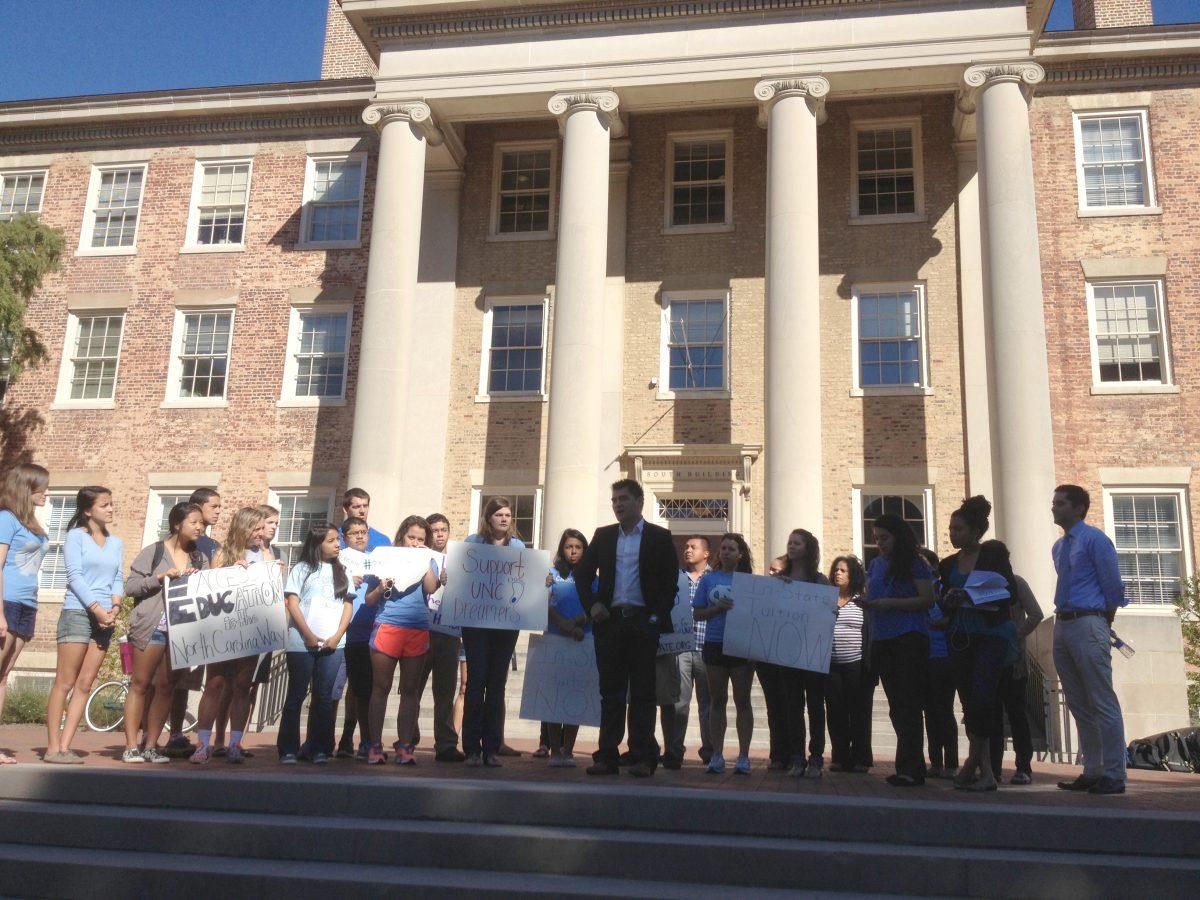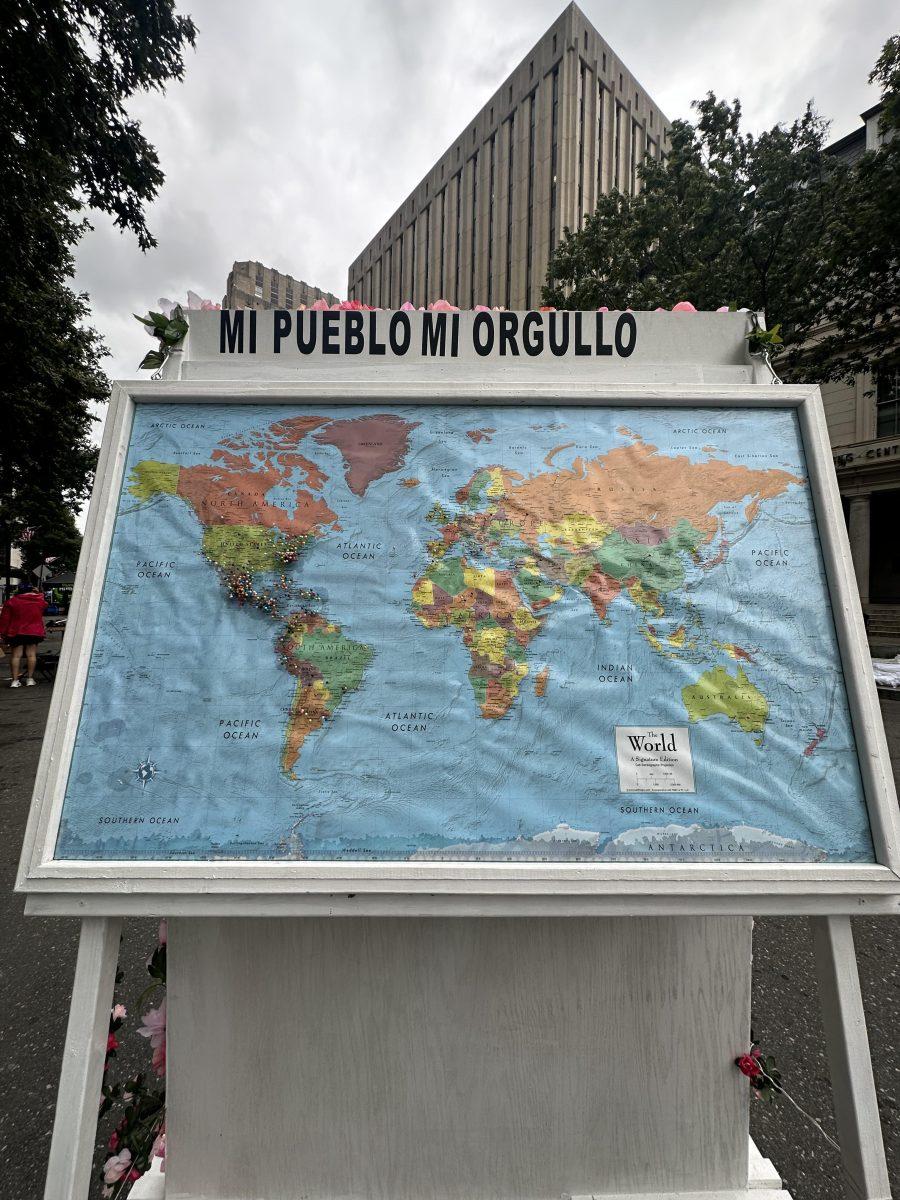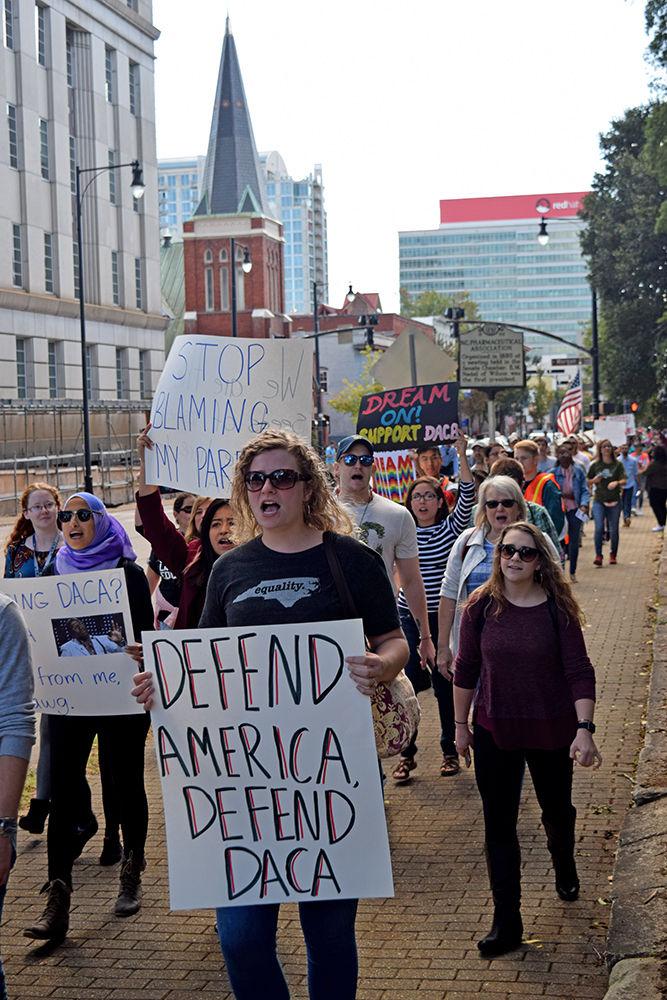If you do well in school and receive good grades, you can go to college. This is the simple mantra that students hear again and again in middle and high school. However, for some Latino students growing up in North Carolina, things aren’t that simple.
According to the National Immigration Law Center, “only about five to 10 percent of undocumented young people who graduate from high school go on to college, compared with about 75 percent of their classmates.”
As a result of this, Emilio Vicente and Pablo Friedmann began the One State One Rate campaign to, which advocates for in-state tuition at UNC-Chapel Hill to apply to students who are in the country illegally in North Carolina, but who meet the residency requirement. Currently, these students pay out-of-state tuition at all community colleges and public universities in the state.
On Sept. 17, the campaign held a press conference at UNC-Chapel Hill and delivered petitions to the chancellor. Since then, the campaign has made it to local news sources in Spanish and English, and made headlines in the Huffington Post.
The question is not whether Latino students from lower incomes want to attend college—it is the fact that they cannot afford it.
Action for Children in North Carolina estimates that in 2008, the median household income for Latino students enrolled in public schools in North Carolina was $31,621, compared with $53,000 for their peers. Additionally, 73 percent of Latino students live in low-income housing as opposed to 43 percent of students of other nationalities.
For out of state students and for those N.C. residents without legal residency, tuition and fees alone cost $21,661 at N.C. State this year.
Because of their legal status, these students are ineligible to receive state or federal financial aid in the form of grants or loans. Furthermore, many private scholarships require proof of legal residency in the United States. For these students, the impossible cost of attending N.C. State or any other UNC-System school as an out-of-state student without any financial assistance shatters dreams of a higher education.
Emilio Vicente, one of the founders of the campaign, considers himself very lucky to be able to attend UNC-Chapel Hill.
“It should be accessible for Latino students and that’s why we’re doing the campaign,” Vicente said. “We want to make UNC and other incredible universities accessible to other undocumented people.”
Pablo Friedmann works with high school students on a daily basis as a math teacher, counselor, and dropout prevention specialist.
“Numerous talented students whose dreams of continuing their education are cut short by the sad fact that they will be charged out-of-state tuition, an impossible financial hurdle for their families,” Friedmann wrote in The Daily Tar Heel.
As a land-grant institution funded primarily by the state, it begs the question, should N.C. State allow these students to attend the university at all? Currently, the guidelines set by UNC-System on the admission of these students has five limitations, the most important one being that a person will only be considered for admission if he or she has graduated from a high school in the United States. The limitations add that students cannot receive financial aid or be considered for in-state tuition.
Earlier this year, the General Assembly proposed House Bill 904, which would change the policy to allow qualified students to receive in-state tuition, regardless of their legal status. Since it was brought to committee, the House Bill has not moved to further discussion in the General Assembly.
It would be advantageous for UNC-System schools to change their policy on documentation for residency requirements, considering how, if the tuition was affordable, they would be able to attend all the way through. An increased graduation rate could not only put them closer on a path to citizenship, but also contribute to the economy as well.
For many of these students, their academic and professional careers are cruelly cut short, not for lack of talent, but for economic reasons. The One State One Rate campaign, if applied to other UNC-System schools, has the potential to change policies and make it easier for students without legal status to continue their education.
“Hopefully someone out there at the other UNC-Systems are paying attention and something will happen at their campuses,” Vicente said. “At the end of the day it’ll have to go through the legislative process.”







